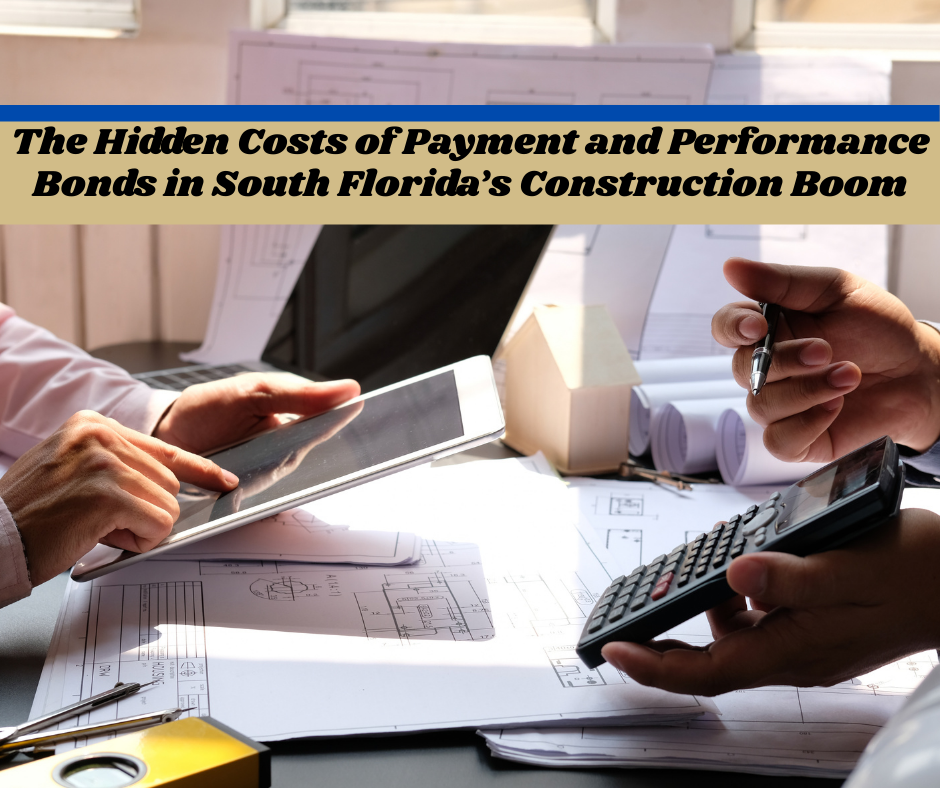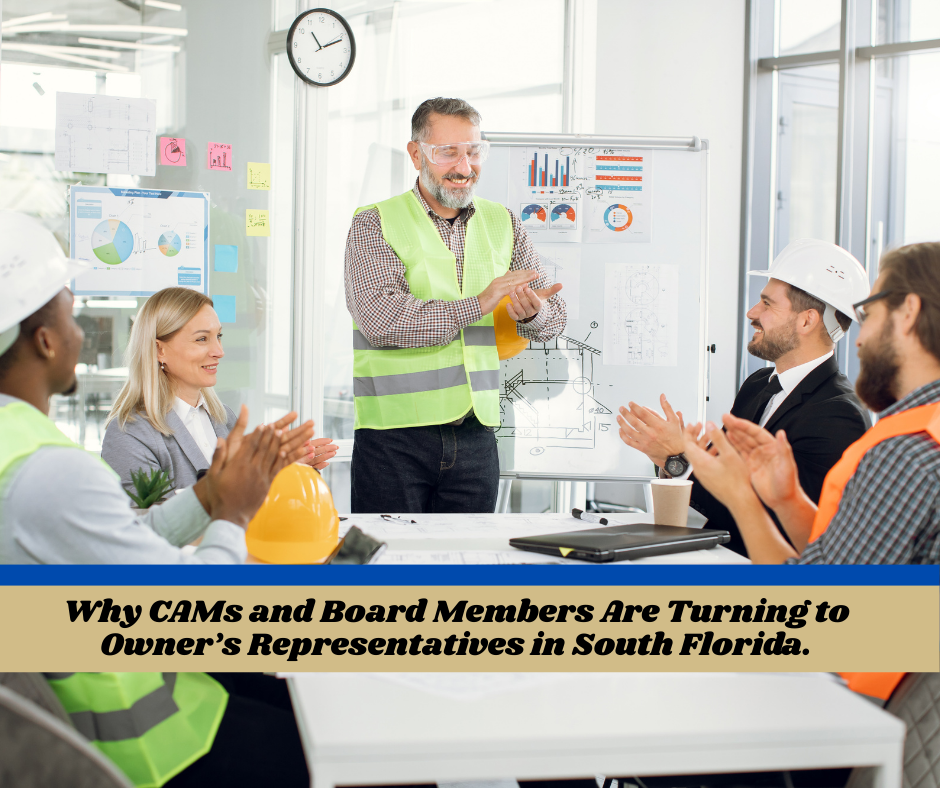The Hidden Costs of Payment and Performance Bonds in South Florida’s Construction Boom

South Florida is experiencing a surge in construction and remediation work due to legislation like SB 4D and an increase in Chapter 558 claims. In response, owners’ representatives, attorneys, and board members are increasingly requiring payment and performance bonds. While intended to reduce risk, this trend may be driving up construction costs and limiting competition, especially for smaller but highly qualified contractors.
In cities where I’ve worked—Portland, Austin, Dallas, Phoenix, Houston and Orlando, among others—bonding is rarely required for standard repairs or renovations. Instead, owners often rely on lien waivers, direct payments to subcontractors, or escrow-based retainage to manage risk. These methods foster more competitive pricing and allow broader participation from small to mid-sized firms.
In South Florida, however, larger contractors with unlimited bonding capacity can inflate not just bond premiums, but also gross profits and overhead, knowing they face little competition. Meanwhile, smaller firms struggle to qualify for bonding at all. This creates an oligopoly-like environment, where only a few firms dominate, and pricing trends climb unchecked.
Importantly, I’ve met with several owners’ representatives in the region who are aware of this challenge. Some have actively sought alternative ways to complete construction projects without relying on bonds—favoring lien waivers, direct subcontractor payments, or phased payment schedules. These leaders understand that flexibility can reduce costs without compromising protection.
With only about 40% of associations currently compliant with SB 4D’s structural inspections and reserve study mandates, the pressure to move quickly is high. That urgency often results in overuse of bonding—sometimes unnecessarily—driving up project costs by 15–30% or more. In a region already struggling with rising material and labor prices, this could become the single biggest driver of increased construction costs over the next five years.
As an expert consultant on construction costs, I believe this is an issue lawmakers need to consider now. Most associations are focused solely on compliance, but few are recognizing how these risk-averse practices could escalate affordability challenges.
If you were a board member and I told you that you could save 15–30% on your mandated construction project, would you be interested? That kind of savings could be the difference between financial strain and project success, especially when multiplied across hundreds of buildings statewide.
This isn’t about eliminating bonding altogether. It’s about finding the right balance—using bonds when they make sense, and exploring other proven, secure methods when they don’t. It’s time we looked more closely at how we build—and who we allow to build—so that safety, compliance, and affordability all remain within reach.
If you are a board member or a community association manager in Florida, and have some questions about a project coming up, feel free to contact me for a no-cost consultation.
Paul Overton
Overton Construction and Consulting
📞 1-855-60 OVERTON | ✉️
paul@overton-construction.com
Trusted Support for CAMs and Boards Across Florida







